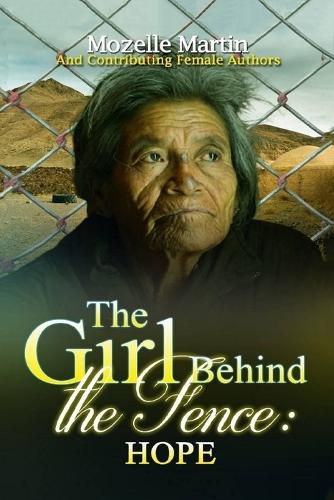Readings Newsletter
Become a Readings Member to make your shopping experience even easier.
Sign in or sign up for free!
You’re not far away from qualifying for FREE standard shipping within Australia
You’ve qualified for FREE standard shipping within Australia
The cart is loading…






This title is printed to order. This book may have been self-published. If so, we cannot guarantee the quality of the content. In the main most books will have gone through the editing process however some may not. We therefore suggest that you be aware of this before ordering this book. If in doubt check either the author or publisher’s details as we are unable to accept any returns unless they are faulty. Please contact us if you have any questions.
Per Mental Health America, 1,872,000,000 (48%) of the world's population feels hopeless. Science proves HOPE lowers the risk of early death and gives people a sense of purpose. Feeling HOPE helps release regret, sadness, anger, and depression. HOPE is not easy to feel, yet feeling HOPE creates possibilities to believe good things will happen so that they really can. Hopelessness is a symptom of many behavioral and mental health issues, including depression, anxiety, bipolar, eating disorders, PTSD, substance abuse, and suicidal ideations. However, hopelessness does not have to co-occur with any particular condition. Not only do feelings of hopelessness compromise an individual's sense of well-being and stability, it typically robs them of the motivation required to reach out for help or to utilize available resources. In fact, many of the common statements said by those feeling hopeless include: my situation will never get better, I have no future, no one can help me, I feel like giving up, it's too late, I have no hope, my situation is helpless, I feel doom, and I will never be happy again.
$9.00 standard shipping within Australia
FREE standard shipping within Australia for orders over $100.00
Express & International shipping calculated at checkout
This title is printed to order. This book may have been self-published. If so, we cannot guarantee the quality of the content. In the main most books will have gone through the editing process however some may not. We therefore suggest that you be aware of this before ordering this book. If in doubt check either the author or publisher’s details as we are unable to accept any returns unless they are faulty. Please contact us if you have any questions.
Per Mental Health America, 1,872,000,000 (48%) of the world's population feels hopeless. Science proves HOPE lowers the risk of early death and gives people a sense of purpose. Feeling HOPE helps release regret, sadness, anger, and depression. HOPE is not easy to feel, yet feeling HOPE creates possibilities to believe good things will happen so that they really can. Hopelessness is a symptom of many behavioral and mental health issues, including depression, anxiety, bipolar, eating disorders, PTSD, substance abuse, and suicidal ideations. However, hopelessness does not have to co-occur with any particular condition. Not only do feelings of hopelessness compromise an individual's sense of well-being and stability, it typically robs them of the motivation required to reach out for help or to utilize available resources. In fact, many of the common statements said by those feeling hopeless include: my situation will never get better, I have no future, no one can help me, I feel like giving up, it's too late, I have no hope, my situation is helpless, I feel doom, and I will never be happy again.